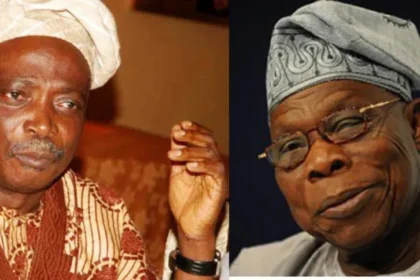A 2010 campaign letter has resurfaced, revealing that Kemi Badenoch, the current Leader of the Opposition and head of the UK Conservative Party, once appealed to Nigerians for their support during her parliamentary run for Dulwich and West Norwood in the United Kingdom.
Then known as Kemi Adegoke, Badenoch wrote the letter during her first major political campaign, seeking election into the British Parliament in a closely contested race. In the letter, she acknowledged the importance of the Nigerian community and made a direct appeal to fellow Nigerians in the UK and beyond to help her win the seat.
“There are just about 20 days to go before polling day and Nigerians have been fantastic,” she wrote. “My immediate circle of friends, ex-school mates, their friends and all our families have really rallied round and have been supportive.”
The letter gained public interest recently after Badenoch, now a high-profile British politician, made comments critical of Nigeria. This contrast prompted many to revisit her earlier appeal, which highlighted her Nigerian roots and aspirations to uplift the country’s image abroad.
Badenoch also described facing ethnic bias during the campaign: “In a recent BBC interview, a caller insulted me because I’m Yoruba… We really need to get out of this mindset where we are fighting one another and try and support each other instead.”
In an impassioned plea, she expressed frustration with the global perception of Nigerians and promised to represent the diaspora’s interests if elected:
“I am sick and tired of reading that Nigerians are fraudsters, terrorists… Our generation has suffered enough… So I am asking for your help now to support a Nigerian who is trying to improve our national image and do something great here.”
She pledged to speak out against corrupt Nigerian officials hiding assets in the UK, oppose British support for questionable figures, and back grassroots movements such as “Light Up Nigeria.”
Although Badenoch ultimately lost that election, the letter underscores her long-standing political ambition and her early attempt to leverage her Nigerian heritage as a unifying and mobilizing force.
Now in a position of significant political power in the UK, the resurfaced message has reignited conversation around diaspora engagement, shifting political narratives, and the evolution of Badenoch’s public stance on Nigerian affairs.




